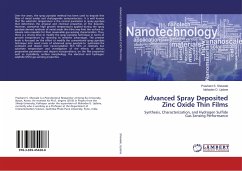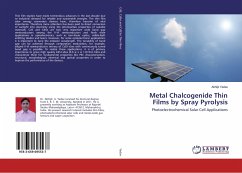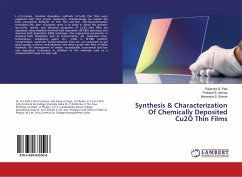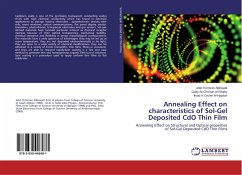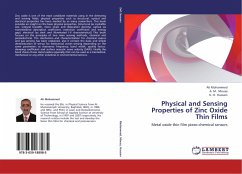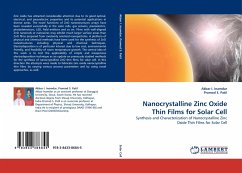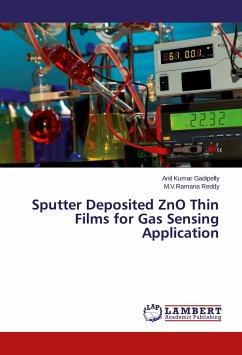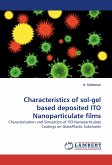Over the years, the spray pyrolysis method has been used to deposit thin films of metal oxides and chalcogenide semiconductors. It is well known that the substrate temperature is the central parameter in spray pyrolysis that determines the physical and chemical properties of the deposits. However, somewhat high growth temperatures applied during the spray pyrolysis derived synthesis of metal oxide thin films may limit the surface-to-volume ratio requisite for their reasonable gas sensing characteristics. Thus, there is a strong drive to modify the spray pyrolysis technique in terms of growth temperature by retaining its inherent advantages. The present book is focussed on the effort to modify the conventional spray pyrolysis technique into novel route of advanced spray pyrolysis to synthesize the undoped and doped ZnO nanocrystalline thin films at relatively low substrate temperature and investigation of the effects of various preparative parameters and dopant incorporations, on the film properties such as crystallinity, surface morphology, the electrical and hydrogen sulphide (H2S) gas sensing properties.
Bitte wählen Sie Ihr Anliegen aus.
Rechnungen
Retourenschein anfordern
Bestellstatus
Storno

